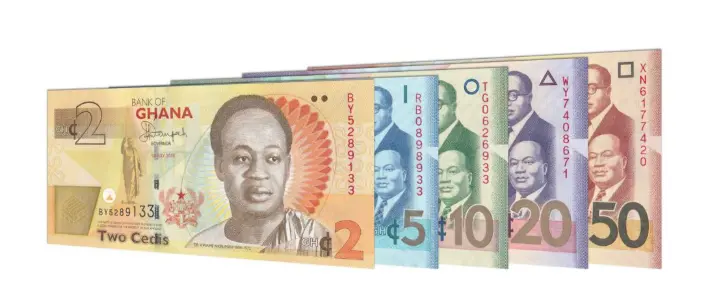For decades, the Ghana Cedi symbolized Ghana’s economic sovereignty, replacing the British pound in 1965 with the promise of a self-reliant future.
It has been at the center of daily life—facilitating trade, paying salaries, driving savings, and anchoring the economy. But six decades on, the cedi’s value and credibility are under intense scrutiny.
Inflation spikes, persistent depreciation against the US dollar and other major currencies, and rising dollarization in the economy have left many Ghanaians questioning whether the cedi still holds the trust it once commanded.
Latest Bank of Ghana data shows the cedi has appreciated by more than 42% so far in 2025—a sharp turnaround that has nearly erased the steep losses of 2022 and 2023, when the currency was one of the world’s worst performers. Against the US dollar and the euro, the cedi is now ranked among the top-performing emerging market currencies this year. But for many Ghanaians, the question remains: Can the cedi be trusted as a true store of value?
What Do Ghanaians Think?
“There have been ups and downs, but under President Mahama’s administration, I think there have been some changes. The cedi is appreciating now, which is good news. I will consider it as a good store of value,” said Simon, a staff of Zapel Ghana Limited.
Nicholas, a district statistician in La Dadekotopon, sees things differently:
“It has lost its store of value over the years, even though it is doing quite well recently. I still see the dollar as a stronger store of value than the cedi.” he said.
“Today, most of the money we use comes in higher denominations, but things cost a lot more now. So even though the cedi looks stronger on paper, it doesn’t buy as much as it used to. That’s why the old currency, with smaller notes and more value, felt more useful for everyday spending,”Hajia Kande Abass, a trader at the Abeka Market also said
Experts Weigh In
For Prof. Peter Quartey, Director of the Institute of Statistical, Social and Economic Research (ISSER), public confidence in the cedi has been eroded by years of double-digit inflation, persistent depreciation, and the growing use of foreign currency in key sectors like real estate.
“The Ghana cedi used to command very high respect some decades ago. While we’ve seen some improvement in its acceptance recently, a currency that faces high depreciation and inflation will always push people to store their wealth in alternative forms,” he said.
He believes that long-term structural reforms—including industrialization, export diversification, and a reduced reliance on imports—will determine whether the cedi’s current strength is sustainable.
What’s Next for the Cedi?
As the cedi celebrates its 60th anniversary, its story is one of resilience but also of lessons learned. Its recent surge offers hope, but without deeper economic reforms, it risks falling into the same cycle of volatility.
